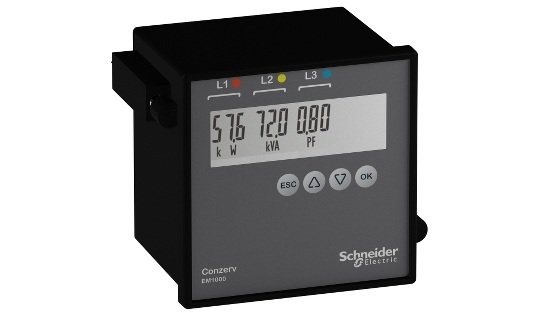In an increasingly electrified world, understanding how and when we consume power has never been more critical. Rising energy costs, climate commitments, and grid efficiency challenges are prompting individuals and businesses to track their electricity use more closely. That’s where the energy meter becomes an essential tool.
Far beyond the traditional role of calculating monthly bills, today’s advanced energy meter offers real-time visibility, actionable insights, and the ability to optimise energy usage patterns. If you’re managing a single household or a sprawling industrial site, monitoring consumption in real-time can unlock significant financial and environmental benefits.

What is an Energy Meter?
An energy meter is a device used to measure the amount of electrical energy consumed by a residence, business, or electrically powered device. While most are familiar with the basic utility meter installed at home, modern digital and smart meters provide far more than consumption data.
Advanced energy meters now deliver:
- Real-time monitoring of usage
- Historical data tracking
- Load pattern analysis
- Remote data transmission
- Integration with building management systems
These features make them indispensable for energy management, compliance, and cost control in both residential and commercial settings.
Benefits of Using an Energy Meter
An accurate and intelligent energy meter serves as the foundation of efficient energy use. Below are the top benefits of deploying modern energy meters:
1. Real-time Consumption Insights
With a smart energy meter, users can track power usage as it happens. This helps in identifying peak load times, detecting wastage, and understanding energy habits.
2. Cost Optimisation
By analysing detailed usage data, businesses and homeowners can adjust consumption to avoid peak tariffs or penalties. This contributes to lower electricity bills and better operational efficiency.
3. Load Management
Modern energy meters help in load profiling, analysing the load curves over time to manage distribution and prevent overloads. This is especially useful for factories, data centres, and commercial buildings.
4. Fault Detection and Maintenance
Fluctuations, power surges, or abnormal consumption patterns can signal equipment issues. A connected energy meter can alert teams to faults, enabling timely maintenance.
5. Environmental Responsibility
Tracking energy consumption in real-time empowers users to reduce unnecessary usage, cut emissions, and support sustainability goals. It’s a simple but powerful tool in the journey towards energy conservation.
Types of Energy Meters in Use Today
There are several types of energy meter technologies, each serving different applications:
- Electromechanical Meters: Traditional spinning disk meters, still used in many homes.
- Digital Meters: Offer basic numeric readings and are gradually replacing older models.
- Smart Meters: Two-way communication enabled, real-time monitoring, and remote access
- Prepaid Meters: Used in rental properties or for managing limited energy budgets.
- Three-Phase Meters: Commonly used in industrial and large commercial settings for higher voltage systems.
Each type of energy meter brings its advantages depending on the context, making it important to choose the right one based on the intended application.
Industrial and Commercial Applications
In commercial and industrial facilities, energy meters do more than track consumption. They support detailed sub-metering by department or process, enabling granular cost allocation and efficiency tracking.
Facilities managers often use energy meter data to:
- Benchmark different sites or production lines
- Analyse the energy cost per output unit
- Align usage with production schedules
- Feed real-time data into energy dashboards
With this level of visibility, companies can make informed decisions that directly impact profitability and sustainability.
Data-Driven Energy Efficiency Starts Here
As we move towards smarter, more sustainable infrastructure, the energy meter stands out as a vital enabler of change. It empowers individuals, businesses, and governments to understand, control, and reduce their energy use.
Incorporating advanced energy meter systems is not just about cost savings. It’s about building energy resilience, reducing environmental impact, and making informed, data-driven decisions for a smarter future.

